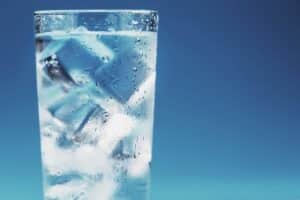What Kinds of Water Softeners Are There?
Water softeners are a great way to make your home’s water more hygienic, but what kinds of water softeners are there? A softener can reduce the effects of hard water on your plumbing system and appliances by removing heavy minerals from your water supply. It can also save you money by making your appliances and pipes last longer, by using less soap and detergent, and by helping your skin feel better after showering.
(Looking for “Water Testing Experts“? Contact us Today!)

There are several types of water softeners to choose from, but they all perform the same basic process: They filter out the hard particles from your water by attracting them to a bed of beads. The type of resin used for a water softener can determine how long it lasts and whether you’ll need to replace it often.
Ion exchange systems are a common option for homes with hard water. These water softeners draw ions from the water and exchange them for sodium ions. The beads in the resin attract the calcium and magnesium ions in your water, transforming them to sodium ions. The resulting solution enters the wastewater system and is then discharged.
Salt-based water softeners are similar to ion exchange water softeners. These systems also use a resin that attracts hard water ions. The resin then changes them to sodium ions, which are a much softer mineral.
These water softeners also come in a dual-tank configuration with one tank for the resin and another for brine. This allows for a faster regeneration cycle than single-tank models, which can take up to two hours.
The dual-tank option can be a good choice for larger households that don’t have enough space for a single-tank model or if you prefer to regenerate at a fixed time, like 3:00 AM, rather than on a recurring basis. These softeners are a bit more expensive than their single-tank counterparts, but they may be worth the investment for larger families and those with irregular schedules.
A bypass valve is a feature that lets you divert water from the softener for maintenance or to turn it off if you’re not using the system. Bypass valves are often included in the installation kit of water softeners, but they can also be purchased separately.
Electromagnetic water softeners are a type of salt-free water softener that works by magnetizing the positive and negative ions of hard water to prevent them from bonding together. These water softeners take up a minimal amount of space and are easy to install.
Magnetic water softeners are a good option for homeowners with light to moderate hard water, as they only require about half the space of traditional models. They are easy to install and don’t need to be plumbed into a home’s plumbing.
In addition to ion exchange and salt-based water softeners, there are also salt-free and template-assisted crystallization (TAC) systems. These aren’t true water softeners, but they remove minerals and prevent scaling from forming on surfaces and appliances.
A water softener is a major appliance in your home, so it’s important to understand how they work before purchasing one. They’re designed for different water situations, so you should choose the one that works best for your needs. You should also consider the size of your household and its average water usage to determine which type of softener is right for you.

